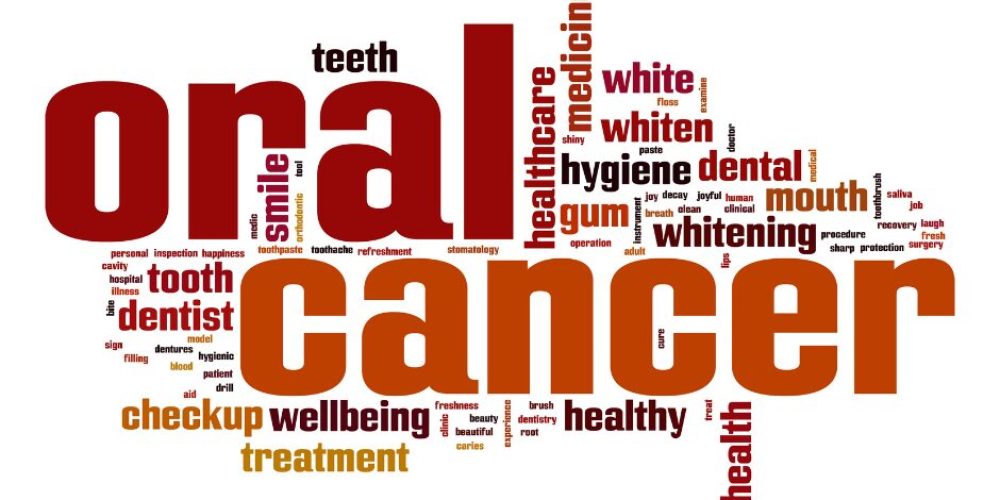Do You Have Oral Cancer? How to Find Out?
Every year, more than 50,000 Americans are diagnosed with some form of oral cancer. More than 10,000 Americans die every year from oral cancer. It is deadly and in most cases, preventable and easy to detect.
Oral cancer is divided into two categories – those occurring in the oral cavity (your lips, the inside of your lips and cheeks, teeth, gums, the front two-thirds of your tongue and the floor and roof of your mouth) and those occurring in the oropharynx (middle region of the throat, including the tonsils and base of the tongue).
Early detection is essential for early treatment. The five-year survival rate of those diagnosed is approximately 60 percent, which is encouraging news for those who discover their cancer and begin treatment as quickly as possible.
Where Can Oral Cancer Appear?
As the name implies, oral cancer is found in the oral cavity. The oral cavity includes your lips, cheek lining, gums, the front part of your tongue, the floor of the mouth beneath the tongue and the hard palate that makes up the roof of your mouth. The throat (pharynx) starts at the soft part of the roof of your mouth and continues back into your throat. It includes the back section of your tongue, as well as the base where the tongue attaches to the floor of your mouth. These are the most common areas for oral cancer to appear.
What Are the Symptoms of Oral Cancer?
If you suspect that you might have oral cancer, please be aware of the following signs and symptoms. If these symptoms do not disappear after two weeks, visit your dentist for a comprehensive examination.
- Persistent sore or irritation
- Red or white patches
- Pain, tenderness or numbness in mouth or lips
- A lump, thickening, rough spot, crust or small eroded area
- Difficulty chewing, swallowing, speaking or moving your tongue or jaw
- A change in dental occlusion: the way your teeth fit together when you close your mouth
- Persistent sore throat, numbness, hoarseness or a change in voice.
What Are the Risk Factors for Oral Cancer?
- Smoking
- Excessive alcohol consumption
- Men are twice more likely to get oral cancer than women. This is because men are more likely to engage in the high-risk behaviors such as smoking and excessive alcohol consumption.
- The human papilloma virus (HPV), which is sexually transmitted, has also been associated with throat cancers at the back of the mouth. HPV-positive head and neck cancers are related to the rise in throat cancers in non-smoking adults.
Can My Dentist Detect Oral Cancer?
Regular dental check-ups that include an examination of the entire head and neck are an important step in early oral cancer detection. During a regular exam, your dentist may ask you about changes in your medical history and whether you’ve been having any new or unusual symptoms. It’s important to report any unusual symptoms that may indicate oral cancer or to advise your doctor if you are in one of the high-risk categories.
Ask your dentist to check your oral cavity. This includes your lips, cheek lining, gums, the front part of your tongue, the floor of your mouth and the roof of your mouth. Your dentist should also examine your throat (pharynx) at the soft part at the roof of your mouth, including your tonsils, the back section of your tongue and where your tongue attaches to the bottom of your mouth. Your jaw and neck should also be inspected for any lumps or abnormalities.
What If My Dentist Finds Something Suspicious?
The first step is to get any suspicious growth or abnormality tested. It’s common for dentists to ask you to return 1-2 weeks later to see if the suspicious growth is gone or still present. If there is evidence of cancer, your dentist will discuss options for diagnosis, treatment and prevention.
Can I Prevent Oral Cancer?
The most important step is to be aware of your risk factors.
Men are twice more likely to get oral cancer as they get older. If you smoke, drink excessive amounts of alcohol or have a poor diet, changing these habits can decrease the chances of developing oral cancer.
If you are at risk of HPV, get tested. The CDC recommends that 11- to 12-year-old boys and girls get two doses of HPV vaccine to prevent cervical and other less common genital cancers. It is possible that the HPV vaccine might also prevent head and neck cancers – since the vaccine prevents an initial infection with HPV types that can cause head and neck cancers. If you have had oral cancer in your past, you are more likely to develop it again. Regular visits to the dentist are a great means for early detection.

